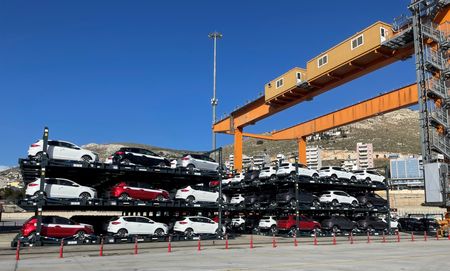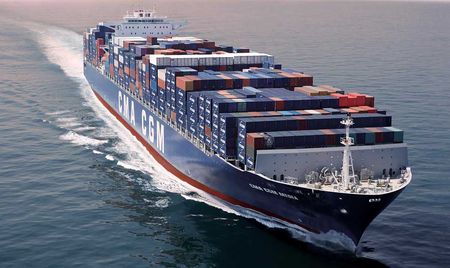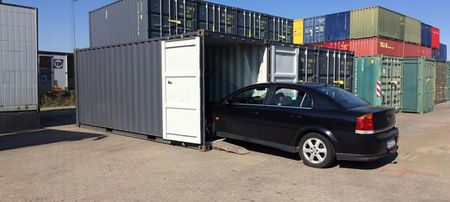Our company Auto4Export is ready to select, purchase and deliver any car you choose from the UAE.
High-quality loading and delivery to your country will be organized by us in the shortest possible time.
Contact our managers and get complete information on any questions you are interested in: - our agents
When it comes to shipping a car from the UAE to Turkey, collaborating with a reputable car shipping company like Auto4Export ensures a smooth and stress-free process. With nearly 20 years of experience in the field, Auto4Export stands out as one of the best car shipping companies in the UAE. Our user-friendly car shipping website provides a seamless experience, offering top-notch services to meet your shipping needs.
How Much Does it Cost to Ship a Car to Turkey?
The cost of shipping a car from the UAE to Turkey varies depending on factors such as the vehicle's size, weight, and the specific departure and arrival locations. On average, car shipping costs range from $1,500 to $3,000. Additional expenses may include insurance, customs duties, and taxes levied by Turkish authorities. To get a more accurate estimate tailored to your vehicle and shipping preferences, it's advisable to request quotes from multiple shipping companies. They can provide detailed cost breakdowns and assist in navigating any regulatory requirements for importing cars from the UAE to Turkey.
How many days does it take to ship a car from UAE to Turkey?
The average delivery time to ship a car from the UAE to Turkey typically ranges from 2 to 4 weeks. Factors influencing shipping duration include the chosen shipping method (such as container shipping or roll-on/roll-off), weather conditions, and customs clearance processes at both ends. It's recommended to consult with shipping companies for a more precise estimate based on specific details of your shipment, ensuring smoother logistics and timely delivery of the vehicle.
Departure and Arrival Ports
When shipping cars from the UAE to Turkey, selecting the right departure and arrival ports is crucial for efficiency and cost-effectiveness. Here’s an overview of key ports and considerations:
Departure Ports in the UAE:
- Port of Jebel Ali, Dubai: As the largest port in the Middle East, Jebel Ali offers extensive facilities for container and roll-on/roll-off (RoRo) shipping.
- Port of Abu Dhabi: Provides comprehensive services for container and RoRo shipping, offering flexibility in export logistics.
Arrival Ports in Turkey:
- Port of Istanbul: Located strategically on the Bosphorus Strait, Istanbul handles diverse cargo and is a major gateway to Turkey.
- Port of Izmir: Situated on the Aegean Sea, Izmir is a significant commercial port serving western Turkey.
- Port of Mersin: Located on the Mediterranean coast, Mersin is crucial for shipments entering southern Turkey.
Shipping Duration and Costs:
- Jebel Ali to Istanbul: Typically takes around 2 to 3 weeks for RoRo shipping and up to 4 weeks for container shipping. Costs range from $1,500 to $3,000 depending on the size and type of the vehicle.
- Abu Dhabi to Izmir: Shipping duration varies from 3 to 4 weeks for RoRo shipments, with costs averaging between $1,800 to $3,500 depending on logistics specifics.
- Port of Jebel Ali to Port of Mersin: Shipping duration is similar to Istanbul, with costs ranging similarly based on the chosen shipping method.
Considerations:
- Shipping Methods: RoRo shipping is typically faster and more cost-effective for vehicles, whereas container shipping offers added security but at a higher price.
- Customs and Documentation: Ensure all required paperwork such as vehicle registration, ownership proof, and import permits are in order to facilitate smooth customs clearance in Turkey.
Choosing the appropriate ports and shipping methods depends on factors like budget, timeframe, and specific logistics requirements. Consulting with shipping companies or freight forwarders can provide tailored quotes and guidance on navigating import regulations, ensuring a seamless process for importing cars from the UAE to Turkey.
Factors of price to ship a car to Turkey
The cost of shipping a car from the UAE to Turkey is influenced by several factors, and understanding these elements is crucial for accurate pricing. Here are key considerations:
1. Location in the UAE:
The distance between the vehicle's location in the UAE and the departure port significantly impacts the cost. Shipping from inland locations may involve additional transportation costs.
2. Method of Transportation:
The chosen shipping method, whether RoRo (Roll-On/Roll-Off) or container shipping, affects pricing. RoRo is generally more cost-effective, while container shipping provides extra security but comes at a higher cost.
3. Type of Vehicle:
The size, weight, and dimensions of the vehicle influence the shipping cost. Larger or heavier vehicles may incur higher fees.
4. Additional Services:
Optional services such as door-to-door delivery, insurance, and vehicle inspection contribute to the overall cost.
5. Seasonal Demand:
Shipping costs may vary based on seasonal demand. High-demand periods can lead to increased prices.
6. Customs and Duties:
Import taxes and duties imposed by Turkey customs authorities should be considered in the overall cost.
Understanding these factors allows for a more accurate estimate of the total cost involved in shipping a car to Turkey.
How to import a Car in Turkey from the UAE?
Importing a car from the UAE to Turkey involves several essential steps and documentation to comply with Turkish regulations. Here’s a concise guide to the process:
Steps to Import a Car in Turkey from the UAE:
- Check Eligibility: Ensure the vehicle meets Turkish standards for emissions, safety, and technical specifications.
- Research Import Regulations: Familiarize yourself with Turkish customs requirements, including taxes, duties, and environmental levies.
- Prepare Documentation:
- Original purchase invoice.
- Vehicle registration documents from the UAE.
- Proof of ownership and insurance.
- Certificate of conformity (if applicable).
- Import permit from Turkish authorities.
- Customs declaration forms.
- Arrange Shipping: Choose a reputable shipping company and select the appropriate shipping method (container or RoRo) based on your preferences and budget.
- Customs Clearance: Upon arrival in Turkey, the vehicle will undergo inspection and customs clearance, including payment of any applicable taxes and duties.
For the most current and detailed information on importing a car into Turkey from the UAE, including any updates to regulations or procedures, it's advisable to contact Turkish customs directly. They can provide tailored guidance based on your specific circumstances and ensure compliance with all legal requirements. Staying informed about any changes will streamline the import process and help avoid potential delays or issues during customs clearance.
What year can a car be shipped to Turkey?
In Turkey, the permissible age of imported cars from the UAE is generally restricted to vehicles that are less than 5 years old from their manufacturing date. Here’s a breakdown:
- Less than 5 Years Old: Typically, cars must be newer than 5 years old at the time of importation to meet Turkish regulations.
- Emissions and Safety Standards: Compliance with Turkish emissions and safety standards is critical, regardless of the vehicle's age, to ensure it meets local environmental requirements.
- Exceptions for Classic Cars: Older vehicles considered as classic or vintage cars may be imported under specific conditions, often for collectors or exhibition purposes.
To verify the specific import requirements and any recent updates, it's advisable to contact Turkish customs authorities directly or consult with a reputable shipping agent. This approach ensures compliance with all necessary criteria and facilitates a smooth import process for cars shipped from the UAE to Turkey.
Shipping Method for Shipping a Car to Turkey
When considering shipping a car from the UAE to the Turkey, various shipping methods are available, each with its own set of advantages and disadvantages. Here's an overview focusing on RoRo (Roll On/Roll Off) shipping, shared container shipping, and exclusive container shipping:
RoRo (Roll On/Roll Off) Shipping:
Advantages:
- Cost-Effective: RoRo shipping is often more budget-friendly than container shipping.
- Efficiency: Quick loading and unloading of vehicles as they are driven onto and off the ship.
- Ideal for Running Vehicles: Well-suited for operable cars.
Disadvantages:
- Exposure to Elements: Vehicles are exposed to weather conditions during the transit.
- Restrictions on Personal Items: Typically, personal items are not allowed inside the vehicle.
Shared Container Shipping:
Advantages:
- Cost Savings: Sharing a container reduces individual shipping costs.
- Enclosed Space: Vehicles are placed within a shared container, providing some protection.
Disadvantages:
- Potential Delays: Coordination among multiple shippers may lead to delays.
- Space Limitations: Shared containers may have restrictions on vehicle size and type.
Exclusive Container Shipping:
Advantages:
- Enhanced Protection: Vehicles are enclosed within an exclusive container, offering better protection.
- Personal Items Allowed: Allows for the shipment of personal items along with the vehicle.
Disadvantages:
- Higher Cost: Exclusive container shipping is generally more expensive than other methods.
- Loading/Unloading Time: Loading and unloading exclusive containers may take more time.
Comparison:
|
Aspect |
RoRo Shipping |
Shared Container Shipping |
Exclusive Container Shipping |
|---|---|---|---|
|
Cost |
Lower |
Moderate |
Higher |
|
Security |
Basic |
Moderate |
High |
|
Loading/Unloading Time |
Quick |
Longer |
Moderate |
|
Flexibility |
Limited to operable |
Limited by group sharing |
High |
|
Protection |
Limited exposure |
Shared space |
Dedicated space |
Choosing the right method depends on factors like budget, vehicle condition, and personal preferences. Ensure to evaluate these aspects to make an informed decision.
Top 10 most imported vehicles in Turkey in 2023.
In 2023, Turkey saw a significant influx of imported vehicles from the UAE, with these top 10 models leading the imports:
- Mercedes-Benz G-Class
- Range Rover
- BMW X5
- Porsche Cayenne
- Toyota Land Cruiser
- Audi Q7
- Lamborghini Urus
- Bentley Bentayga
- Ford Expedition
- Chevrolet Tahoe
These models reflect Turkish consumers' preferences for luxury, performance, and reliability when importing vehicles from the UAE in 2023.















